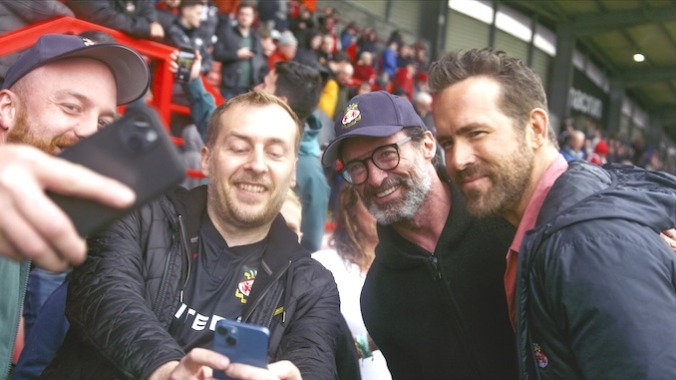FX’s Welcome to Wrexham Continues to Deliver in its Third Season
Photo Courtesy of FX
There are two obvious problems I see for Welcome to Wrexham as it ages into its third season.
The first is redundancy, and I mean that in the American rather than British sense; how often can you hear the citizens of the Welsh city say something like, “I can’t explain how much it means to have our club back” before it loses all emotional impact?
The second problem feels far more critical, and it’s the creeping awareness that, despite attaching themselves to a down-and-out underdog club in a struggling, almost bleak city holding on to the remnants of its pride, Rob McElhenney and Ryan Reynolds are, in fact, emerging juggernauts in English soccer. Not only did they infuse Wrexham A.F.C. with the kind of money their National League counterparts could only dream of—the amount they spent in wages in the 2022-23, the season they finally got promoted, was a National League record, more than any club in League 2 (the next rung up the ladder), and near the top of League 1 clubs—but they’ve effectively leveraged their celebrity to create a promotional giant complete with an excellent TV show, and this in turn generates revenues their rivals just can’t compete with. At one point early in the third season, McElhenney and Reynolds compare Manchester United to the New York Yankees, but the fact is that, by the standards of lower tier English soccer, they are the Yankees… which, obviously, takes a little juice out of the underdog narrative.
How do you solve those problems and keep a sense of anticipation and affinity in your TV show? As to the question of redundancy, you do still get a bit of the “this is so meaningful!” schtick, and it does hit with a little less impact this time around, but what Welcome to Wrexham has always done brilliantly (and what it continues to do in Season 3) is to turn its focus to the individual.
The show’s creators are masterful at unearthing beautiful stories around the city, and in the three episodes made available to critics, there’s already a great example in Oliver Stephen, a photographer who battles mental health issues with a kind of toughness and grace that can reduce you to tears. He takes pictures on match days, but has never been to an actual match due to his discomfort with large crowds and loud noises, but he’s woven himself into the fabric of the club regardless, and the club has woven itself into him; he counts himself as a fan, because he knows this bleak city saved his life, and the club is an integral part of the place.
-

-

-

-

-

-

-

-

-

-

-

-

-

-

-

-

-

-

-

-

-

-

-

-

-

-

-

-

-

-

-

-

-

-

-

-

-

-

-

-








































